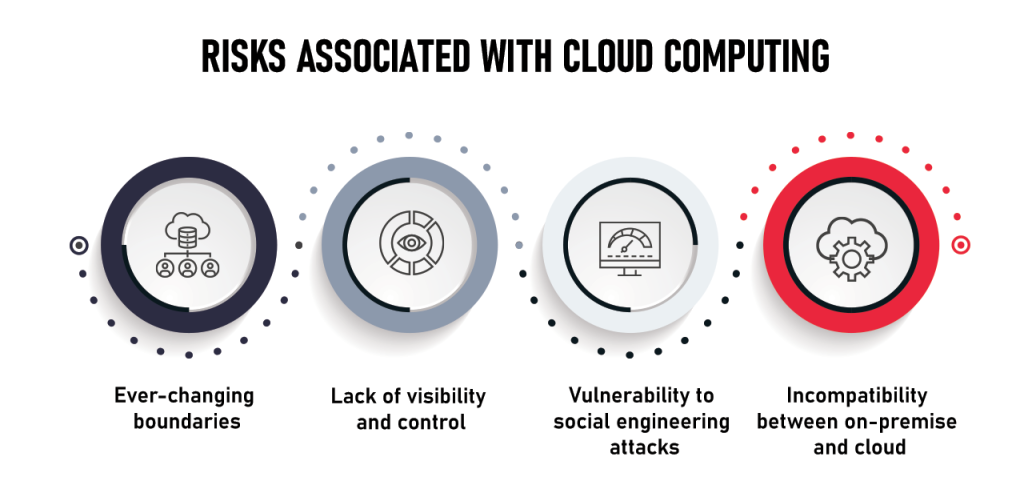Are There any Risks Associated with Cloud Computing?
Cloud computing has become an increasingly popular choice for businesses of all sizes. Cloud computing offers numerous benefits, including cost savings, scalability, flexibility, and improved collaboration. However, cloud computing also presents several risks that businesses should be aware of. In this blog post, we’ll discuss some of the key risks in cloud computing.
- Security Risks
Security is one of the most significant risks in cloud computing. Cloud providers are responsible for securing the infrastructure, but businesses are responsible for securing their data and applications. This means that businesses must ensure that their data and applications are secure from unauthorized access, data breaches, and other security threats.
- Compliance Risks
Cloud computing can present compliance risks, particularly for businesses that operate in heavily regulated industries such as healthcare, finance, and government. Businesses must ensure that they comply with all relevant regulations and standards when using cloud services.

- Data Loss Risks
Cloud computing can also present data loss risks. While cloud providers typically offer robust backup and recovery solutions, businesses must ensure that they have adequate backup and recovery procedures in place to protect against data loss.
- Availability Risks
Cloud computing can present availability risks, particularly for businesses that rely heavily on cloud services. Businesses must ensure that they have adequate service level agreements (SLAs) in place with their cloud providers to ensure that they have the necessary availability and uptime guarantees.
- Vendor Lock-in Risks
Cloud computing can also present vendor lock-in risks, particularly for businesses that rely heavily on a single cloud provider. Businesses must ensure that they have adequate exit strategies in place to avoid being locked into a single provider.
- Performance Risks
Cloud computing can present performance risks, particularly for businesses that require high levels of performance and responsiveness from their cloud services. Businesses must ensure that they have adequate performance monitoring and management solutions in place to ensure that their cloud services meet their performance requirements.
In conclusion, cloud computing presents several risks that businesses should be aware of. These risks include security risks, compliance risks, data loss risks, availability risks, vendor lock-in risks, and performance risks. By understanding these risks and implementing appropriate risk management strategies, businesses can effectively manage these risks and reap the benefits of cloud computing.
